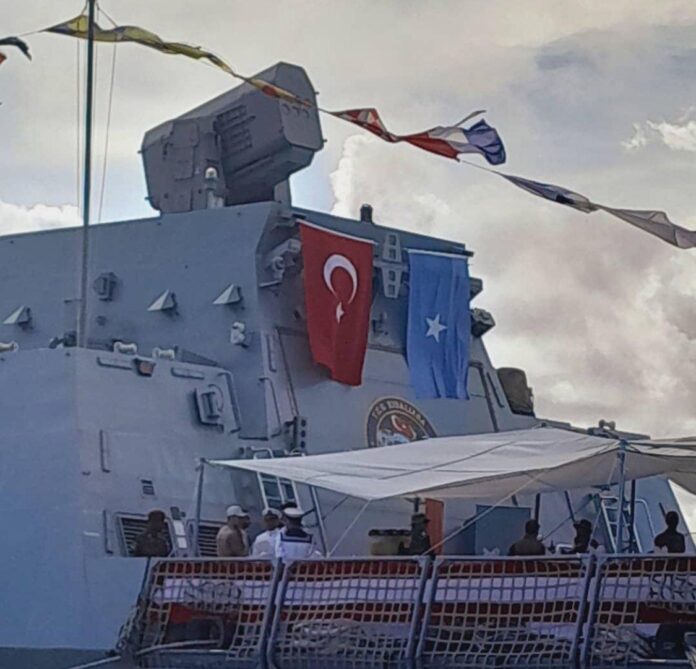U.S. Military Aid Cuts To Somalia: Turkey Fills The Vacuum
Zaelnoon Suliman
Policy brief: African Affairs Unit, Progress Center for Policies
Introduction:
Washington has withdrawn its support for Somalia’s special forces and is reconsidering plans to deploy hundreds of U.S. troops across the country, in line with a broader program of cutting foreign aid. The reduction of security assistance and the departure of foreign trainers have deeply affected the morale of local forces. Meanwhile, tensions are rising between U.S. officials and Somali authorities. A White House official acknowledged growing frustration with the Somali government, which is seen as prioritizing domestic political agendas over the fight against terrorism—particularly amid an escalating threat from the jihadist group al-Shabaab.
Details:
The stance of the second Trump administration remains unclear. There are growing doubts in Washington about whether the fight against al-Shabaab remains a U.S. priority or whether Somalia’s deeply corrupt and fragmented government is capable of leading counterterrorism efforts. There is a prevailing belief in Washington that continuing financial and logistical support for Mogadishu’s structurally corrupt government is futile, with aid funds often used to secure clan-based loyalties and consolidate President Hassan Sheikh Mohamud’s authority.
The current U.S. administration appears reluctant to concentrate resources on maintaining influence in Africa, especially as regional security challenges, trade route disruptions, and global power rivalries intensify. As a result, Washington is reducing military aid to allied forces in the region and preparing alternative strategies that rely on regional security arrangements to bear the burden.

Somalia’s government and an African Union peacekeeping mission are increasingly turning to Turkey to help counter the long-standing jihadist insurgency that now threatens Mogadishu and other major cities.
UN sanctions experts documented two recent meetings between al-Shabaab and Yemen’s Houthi rebels. A former U.S. State Department official revealed that the most recent meeting involved the Houthis sending an explosives expert to al-Shabaab-controlled territory.
The U.S. has coordinated meetings with Somalia’s seven main security partners, including the UK, Turkey, the UAE, and the African Union. However, American sources noted that despite a general consensus on counterterrorism, conflicting national agendas among these partners often undermine focus and effectiveness.
Since February, al-Shabaab has recaptured dozens of villages, including the strategic town of Aden Yabal, regaining operational control over nearly a third of the territory they had lost to federal forces in 2022. This resurgence coincides with reduced U.S. support for Somalia’s elite Danab Brigade, a 2,500-strong special forces unit. At the same time, the African Union has been unable to pay its peacekeeping troops’ salaries—totaling $96 million since January—due to either internal corruption or broader aid freezes under Trump-era policies.
Turkey Steps In:
Turkey’s engagement in Somalia dates back to 2011, when it provided famine relief that saved hundreds of thousands of lives. Since then, Ankara has rehabilitated a major hospital in the capital, taken over the management of Mogadishu’s port and airport, and established its largest overseas military base there—backed by a $50 million training center that has already trained about 15,000 Somali troops.
On February 8, 2024, Turkish Defense Minister Yaşar Güler and Somali Defense Minister Abdulkadir Mohamed Nur signed a landmark economic and military cooperation agreement in Ankara. This exceptional deal grants Turkey extensive land, sea, and air military influence in Somalia.
Their growing partnership includes a recently revealed oil exploration deal and the delivery of advanced Turkish Bayraktar Akıncı drones, which have significantly greater payload capacities than the smaller Turkish drones previously in use. This further strengthens Turkey’s military presence in the Horn of Africa while providing Somalia with an alternative security partner in the face of unpredictable U.S. policies.
As former colonial powers withdraw from Africa, Ankara sees an opportunity to expand its presence. Somalia is strategically important to Turkey due to its location along vital shipping routes and its natural resource potential.
Turkish firms have signed lucrative contracts to operate Somalia’s port and airport. Turkish survey ships are now exploring offshore oil fields. In April, details emerged about an oil deal that would give Somalia only a 5% share of production—sparking outrage among lawmakers and opposition leaders.
Conclusion:
U.S. disengagement from Somalia risks fueling al-Shabaab’s expansion into neighboring Kenya and Ethiopia and could strengthen the group’s emerging ties with Yemen’s Houthi rebels.
Further U.S. withdrawals could worsen Somalia’s political divisions and jeopardize efforts to contain one of Africa’s deadliest insurgent threats.
Turkey is planning long-term strategic ties to benefit from Somalia’s resources should peace and stability be achieved, while deepening its influence across the Horn of Africa.
Turkey’s growing military footprint in Somalia has drawn domestic criticism, particularly as it coincides with al-Shabaab’s territorial advances and ongoing threats to Mogadishu and other major cities.


